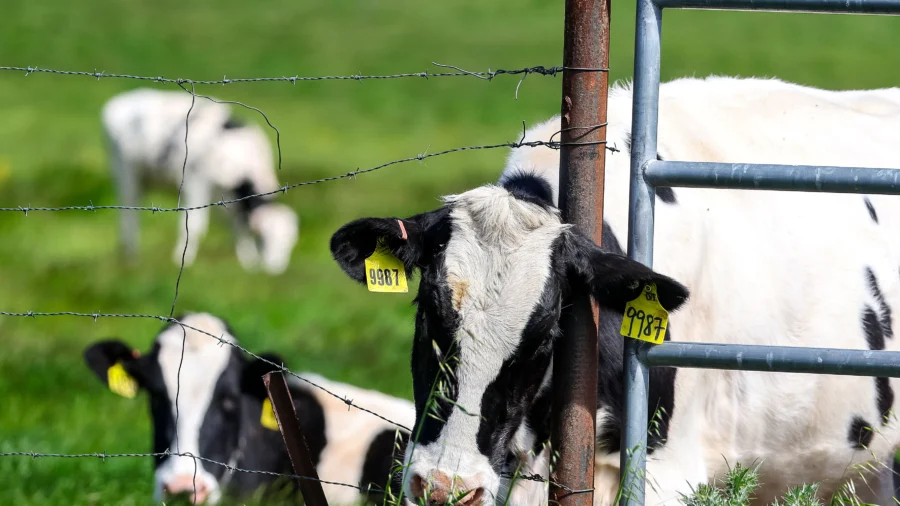California health officials confirmed the state’s first two cases of human bird flu infections on Oct. 3.
Both people live in California’s Central Valley—a key agricultural region in the state—and caught the virus after contacting infected dairy cattle.
Both cases were confirmed by the federal Centers for Disease Control and Prevention (CDC), according to the California Department of Public Health.
“There is no known link or contact between the two cases, suggesting only animal-to-human spread of the virus in California,” the health department announced in a press release Thursday.
Both people had mild symptoms, including conjunctivitis. Neither reported respiratory symptoms, and they were not hospitalized.
Health officials were not able to release more details about the cases because of patient privacy laws.
The risk of bird flu spreading to the general public remained low Thursday, but people who interact with infected animals—like dairy or poultry workers—were at a higher risk of getting the virus, according to health officials.
State agricultural workers discovered bird flu in more than three dozen California dairy cow herds in September, according to the U.S. Department of Agriculture.
California is one of 14 states to confirm finding the virus in dairy cows since March. The state reported cases in 40 herds.
The avian influenza, or bird flu, is a highly contagious virus that often kills poultry, according to the Food and Drug Administration (FDA).
Though the virus usually kills only about 2 percent of the infected dairy cows, farms in several states this year have culled hundreds of dairy cows after they failed to return to producing milk after becoming sick, the USDA reported.
Once infected, dairy cows usually lose their appetites and produce less milk, and the milk is thickened and discolored.
The state recommended that people working with these animals wear protective equipment such as respirators, N95 masks, eye protection, and gloves.
Pasteurized milk and dairy products continue to be safe to consume, as pasteurization is effective at killing the bird flu virus, according to health officials.
Milk from sick cows is also not permitted in the public milk supply, the state reported.
State health workers are coordinating and reaching out to dairy producers and farmworkers about preventive measures to lower the risk of spreading the virus to humans.
The state has distributed more than 340,000 respirators, 1.3 million gloves, 160,000 goggles and face shields, and 168,000 hair coverings in the last four months, according to the health department.
People exposed to infected animals should monitor themselves for 10 days, looking for eye redness, cough, sore throat, runny or stuffy nose, diarrhea, vomiting, muscle or body aches, headaches, fatigue, trouble breathing, and fever, according to health officials.
From The Epoch Times

